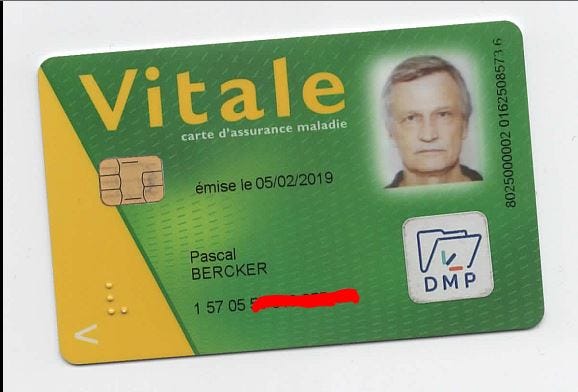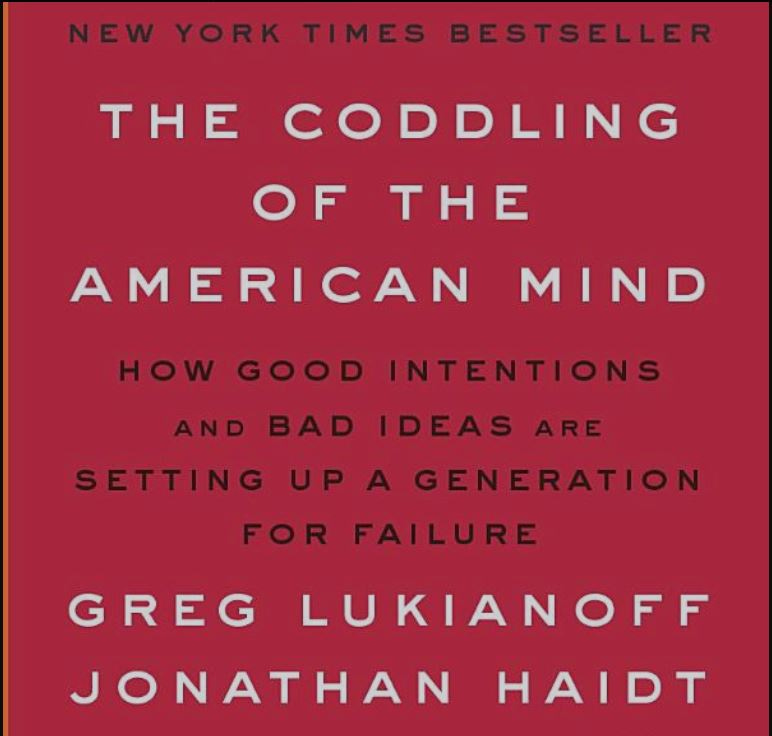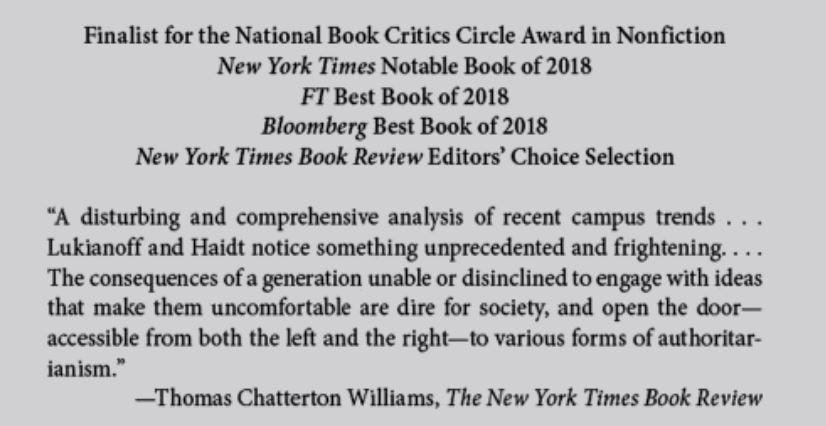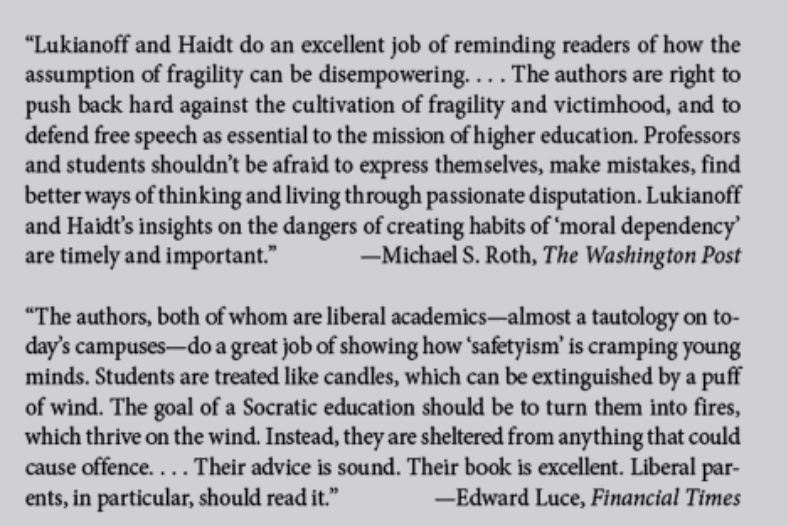This will initially seem off-topic. Was this not about my prison diaries? Well … yes … it is, but it’s also about trying to come back within society, not the easiest of endeavors given my age and my excessive baggage. Neither travels very well.
Early and late, much of my life has been centered around Academia, and my quest for a Ph.D. from CU Boulder, in Colorado, a place I call Shangri-La. Socially, culturally, politically, academically, the place was made for me, and me for it. I was associated with it for about 10 years, from 1993-2003. These were the happiest years of my life, the standard by which I measure all else, and all else falls short. I very much felt as if I had finally arrived. My leaving, in the pursuit of an old flame that eventually fizzled out and burnt itself out was the biggest mistake of my life I ever made, and was a significant contributing factor to how and why I fell apart; then fell into drug abuse, porn abuse, and then descended straight to hell (explained in a previous blog). (I have sometimes said to an old boyfriend that he could have saved from all that grief had he not let me go so easily. I hope that makes him smile as he reads this!)
But CU Boulder, for me, is still unfinished business. I missed out on my Ph.D. but maybe I could get the consolation prize of my Master’s from there. The rules are quite clear that not terminating the Ph.D. is not bar to taking the MA in lieu it. I fully qualified for it, having satisfied (more than) all the requirements. I decided to pursue the matter because it might also aid me in what is left of my “professional” life. Credentials matter. Especially in France. A freshly minted Master’s diploma could be something for me to frame on my wall, and help get my foot in the door, preferably somewhere in French Academia.
I started this process at the beginning of 2021. It was initially a formality, where I had to re-register - pay the $200 re-admission fee - and then apply for graduation. I duly registered; my stated purpose was made clear to the graduate advisor. I was accepted, and suddenly found myself a graduate student again! I was, frankly, stunned and then elated. It felt as if I had come back from exile and had been allowed to come back in, even if only tentatively and remotely, by way of the internet.
Except that nothing is ever simple, not when it comes to bureaucracy. French Bureaucracy is notorious for their punctiliousness, but the US is a close second. The gears of bureaucracy began to grind.
Even though I would not ever step foot on the CU campus, not even step foot in the US (something about being deported entails I can never return), my being re-admitted was just the first step. I then had to give proof of COVID vaccination. Done. Then proof of child-hood vaccinations. Done. And proof of health care coverage. Thank goodness for my Carte Vitale! Done!
This is the national French Health Card. By accident, I once tried to use it to pay a store bill. The cashier gave it back to me. It doesn’t work that way!
I explained - repeatedly - to the CU registrar, that I was not actually going to be physically present; surely I can’t transmit COVID 6000 miles away? But the rules are the rules. So I continued with the process. And then I had to register for one credit hour. Again, some sort of formality, to get reactivated. I hesitated, but I did as I was told. Then came the sticker shock.
That’s $3600 - about 3100 Euros. That’s a steep price. I hesitated. I wrote to the department that it felt a bit high in view of what I was actually getting. It was meant to be a formality - a technicality. I was told those were the rules. So I complied, thinking that I would be employed by now in order to pay the bill. I even thought I could eventually get the fee “waived”, like with a magic wand!
Be gone! You have no power here!
That was early 2021. Apparently no one has such powers. Six months later, I am still unemployed. And my unemployment benefits will run out at the end of November. This sum would be a huge investment with extremely uncertain returns on investment. I dithered and stalled. I thought I could explain to the department - and whoever else - that in view of my purpose, surely the $200 I paid to be readmitted was enough? The graduate advisor actually apologized to me - saying that he was embarrassed by the CU system making me pay this fee. In effect, they are holding my diploma hostage.
So I engaged myself to start making preparations to pay for this thing. Even started thinking of taking a course, if I was to pay such a high fee, I should profit from it somehow. But my status being unclear, I asked for clarification. My status was that of a readmitted graduate student. I’m on the email list. I was given a .edu email account (a very precious thing, by the way. This email is a portal to journal access that otherwise would not be accessible, except at very high cost. Such is the privilege of an .edu email!)
At some point, I was beset by doubts and thought I should just withdraw altogether. But that felt like a defeat. I really really want that Diploma. It represents nearly 10 years of my academic life. And it could open doors that are closed to me at the moment. Maybe.
I changed my mind, but the deadline to graduate in September had passed. Even if I withdrew altogether, I would still be liable for the bill, and no diploma! So I changed course. I thought I would take a leave of absence, and try to gather funds somehow. This is what I said to the department and the Bursar’s office. I would try to seek funding via a GoFundMe campaign - and hope for the best. Meanwhile I have to retroactively withdraw from that one credit hour - and then reapply in the Spring of 2022. The hope is that I would not be billed twice - for the Fall and for the Spring semester, for a total of more than $7000! No magic wand would waive that away!
An aside for my French readers: have I mentioned that student debt in the US is several trillion dollars? (It’s more than the entire French GDP - the PIB we call it here!) The average graduate student has a debt of about $100,000! That is the number one political/economic issue for a significant section of the population: many want debt forgiveness. This is less well known in France since University education is much cheaper. There is a significant left-right divide in the US on this issue. If you wonder what fuels the culture wars in the US, it’s partly that. There’s an underlying economic issue that festers and stresses young indebted adults. The issue is fundamentally about money. Let me hazard a guess: if a Republican makes part of his or her platform complete and total student loan forgiveness, millions of registered Democrats will vote for that Republican. The culture war is partly fueled by understandable worries about money and crushing debt. I hate to give a strategy to the GOP, but imagine the scenario I am painting for you: Millions of young adults would become Trump voters overnight if he uttered 3 magic words: Student Loan Forgiveness!
But I digress. Back to Boulder, Colorado. I’ve been going back and forth with the philosophy department, the graduate school, the registrar’s office, the campus health office, and the bursar’s office, trying to make my case. I just want my Diploma. Please.
But as any good bureaucracy will do, they say they sympathize, but refer back to the rules, and then deflect and direct you elsewhere. It's a dehumanizing process. (Kafka knew this and wrote about it. That’s why we call the process Kafkaesque. The word is even in the dictionary).
Franz Kafka (1883-1924) was a Czech-born German-language writer whose surreal fiction vividly expressed the anxiety, alienation, and powerlessness of the individual in the 20th century. Kafka's work is characterized by nightmarish settings in which characters are crushed by nonsensical, blind authority. Thus, the word Kafkaesque is often applied to bizarre and impersonal administrative situations where the individual feels powerless to understand or control what is happening.
In any case, I’ve been doing my own work, but seeing campus emails go back and forth, I have a sense of the goings-on of campus life. I myself was very active when a graduate student in campus life and residential life.
But the other day, an email came across about a campus survey that intended to measure how students generally feel on campus so as to “better serve” students in function of their “needs”. Few responded. The philosophy department sent this appeal:
I’ve received some preliminary information about the campus culture survey indicating that the response rate among graduate students in our department is very low. Please see details below and I would greatly appreciate it if you would take the time to do the survey if you have not already done so. There’s a lot of potentially valuable information we can get out of this but only if we get a meaningfully high participation rate. Thanks very much for considering this and see details below.
Fair enough. My own guess is that part of the reason response rate is low is that it’s just tedious to fill out yet another survey. But another potential reason is that when things are going well enough, who bothers to reply to a survey? But then another email was sent by someone else in some supervisory capacity, again urging graduate students to respond, but adding a sinister insinuation:
Just to chime in with ____, this survey is really important to identify how the department can better support us as grad students. Lots of students in many departments experience microaggressions (and not so "micro" aggressions), or are otherwise made to feel uncomfortable for a variety of reasons, e.g. belittling comments, singled out in class, repeatedly interrupted/talked over, etc. Students often don't speak about these issues because they don't want to draw further attention to themselves. Completing the survey helps identify the issues so the department can work on improving its climate.
Here’s one way the department could better serve me: don’t charge me $3600 for my Diploma! Please!
Now, I’m quite possibly over-attentive to such words like “microaggression” being tossed about as if holy-writ. That raised an eyebrow. What is “microaggression” anyway? Is this a serious issue?
It is a highly contested - and contestable - issue, and can have political or ideological uses and consequences:
A number of scholars and social commentators have criticised the microaggression concept for its lack of scientific basis, over-reliance on subjective evidence, and promotion of psychological fragility.[7] Critics argue that avoiding behaviours that one interprets as microaggressions restricts one's own freedom and causes emotional self-harm, and that employing authority figures to address microaggressions (i.e call-out culture) can lead to an atrophy of those skills needed to mediate one's own disputes.[8] Some argue that, because the term "microaggression" uses language connoting violence to describe verbal conduct, it can be abused to exaggerate harm, resulting in retribution and the elevation of victimhood.[9]
This is why it raised an eyebrow from me, especially as it seemed to be coming from “official sources” and thus with the stamp of approval from the department.
And that’s really a part of a much larger social phenomena taking place over several decades on many campuses in the US. This was the subject of an enormously successful book in 2018, by Jonathan Haidt:
Just a few quick reviews will give you the gist of the thing in question.
Thomas Chatterton Williams may be known to my French readers since he has made his home in Paris a few years ago and made the cover of Le Monde, a Parisian magazine. Here’s two more to give the flavor:
(Having read Jonathan Haidt’s other book, The Righteous Mind: Why Good People Are Divided by Politics and Religion, I have a general sense of his approach to these issues, namely that of evolutionary psychology.)
With that in view, I could not really let that one email go uncommented for it struck me as perfectly symptomatic of this very thing, the coddling of the American Student. I thus wrote the following email. Notice that I’m trying to negotiate a mine-field here, and walking as delicately as I can! But you can still hear the crunch of egg-shells as I write the following lines!
I see that this survey – being campus-wide – has some potentially serious consequences depending on how it is answered, given that it has policy implications.
I am writing from France – and have not been on the CU campus for 20 years (but have been on others, including UMSL in Missouri and Jefferson College, a 2-year college in Missouri). But having taught many classes there (and elsewhere) – and now (strangely) being a returning students (under complicated circumstances) I should like to reply cautiously but politely, and voice a concern that cannot possibly be mine alone.
Some observations and serious questions come to mind:
That few students have so far replied could be an indication that there’s just not that much dissatisfaction or concern to report. Much like newspapers, when nothing significant has happened it is seldom reported. The dog not barking goes unnoticed (except by Sherlock Holmes!) Thus, could the low-response rate itself be significant evidence of something meaningful?
There is an obvious objection to be made: The concept of “micro-aggression” is still something of a contested theoretical construct – and inviting people to take the survey and to report “micro-aggressions” is a bit like a lawyer “leading the witness”. If the word goes out to graduate students that then filters down to undergraduate students that “micro-aggressions” (however this is perceived) need somehow to be included in this campus survey, what exactly is the metric by which this is measured?
How is it known that “lots of students” experience “microaggressions” – what exactly is the evidence? To the extent that few students allegedly actually speak out about “micro-aggressions” (for fear of being singled-out), how then was this evidence obtained?
What constitutes “not so ‘micro’ aggression”? This is a dark insinuation, and is important, because “no-so micro” implies maybe “macro” – and as such is not the topic for a survey, but should be reported to campus police. Being made “uncomfortable” is one thing: feeling threatened in anyway is something altogether different and far more serious. That, by implication, “lots of students” experience this is a very serious allegation that ought not to be made lightly.
Is the issue about being “made to feel uncomfortable for a variety of reasons, e.g. belittling comments, singled out in class, repeatedly interrupted/talked over” in regards to how teachers are making students feel – or how students are making other students feel?
Among other things, I used to teach Philosophy of Religion. I asked very hard questions. I minced no words. This was serious business, and some who may have felt their belief system challenged may well have felt “uncomfortable”. Does that count as “micro-aggression”?
I taught a course, long ago, at CU – philosophy of science I think it was. One textbook I used was Jared Diamond’s book: Why Is Sex Fun?
Students found it fascinating, but also uncomfortable, for Jared Diamond is a serious scholar, and is not really in the business of making people feel comfortable. At what point does challenging commonly-held views become “problematic” and constitutes “micro-aggression”?
This is very serious business because future policy decisions about what campus-wide programs on improving the climate seem to depend on it. But if the climate is essentially fine as it is, there’s not much call for change. But there should not be an artificially created need for programs which could be the unintended consequence of the direction of this email.
Encouraging students to respond to a survey is one thing, but to encourage them to respond in a particular way, using some “trigger word” like “micro-aggression” which (to say the least) is filled with ideological baggage is, I believe, seriously problematic, and will put in question the legitimacy of the data and the uses to which they are put.
Presumably, the results of this survey will eventually be published – become public - and could even make the news, depending on what is alleged to be “found”. We are all familiar with the idea of “manufactured consent”, made famous by Chomsky and others. Perhaps we should also become sensitive to the idea of “manufactured discontent” and ought not to contribute to it, however inadvertently.
I’m aware that these questions are not necessarily welcomed … but I submit them because I know they are not my concerns alone. There are others who have similar concerns, but do in fact feel constrained not to voice them for fear of being singled out and suffer the consequences.
But I do submit them as respectfully as I can.
I was right that I was not alone in thinking this. One student emailed and thanked me for it, and said so to the chair of the department as well. But that’s not the end.
You might have thought that would have been duly noted … and that would be that. But less than an hour later, the department chair responded, for he had received “complaints” about my queries. He wrote that that particular email list was not the place to discuss this. Duly noted. Indeed, I emailed the chair and apologized for the indiscretion. He accepted the apology. (I did likewise with the original writer).
But then I received this, from another graduate student:
To quote ______ : "That is not the purpose of this list. If anyone has a concern about the way someone else has used the list, please reach out to that person individually and/or to me."
Please keep YOUR political views to yourself. ________ is an extremely valuable and important graduate student in our department (whereas...I'm not really sure who you are...) and your email reads like a giant call out of her, which is completely uncalled for. Nobody was asking for your (or anybody else's) opinion on microaggressions...in fact, I'm sure you could have shared your opinion in the survey! Also, this was a campus wide survey, so it is really unclear to me why you think it is your job to critique the survey (or the people asking us to take it) in a department-wide email listserv...Finally, both the city of Boulder and the University of Colorado at Boulder are extremely progressive and left of center, so the idea that P___’s mere mention of microaggressions would somehow offend people (or skew survey results) more so than your thousand word rant is pretty ludacris. [sic]
I had no problem with the survey, or with ____ gentle reminder that it is important, but your email was extremely obnoxious.
Ok, duly noted. By the way, I trust we all know that the word is “ludicrous”!
But apparently, that was not enough. That’s were the connection comes back to my circumstances … being still unemployed … and never escaping my past, come what may, thanks to the all-seeing eye of Sauron, aka google search. For the next morning this same irate graduate student sent me this:
To Pbercker:
Was this a micro or macro aggression?
https://www.publicpolicerecord.com/missouri/doc-prisoner/Bercker_Pascal/1270753
I wrote to the person who initially spoke about “micro-aggression”, explaining that my intention was not to offend, but to inquire. Indeed, my original email has half a dozen questions. She replied thus:
If you read my initial email with greater rigor, you'll see there was no directive to report micro-aggressions. Insofar as there was a directive, it was to complete the survey. I simply explained one reason why a student might want to complete the survey--if they've experienced bad behavior, the department can only fix that if they know about it. I am physically present in the department and an active mentor, so I have a sense of what this particular community of students goes through. If you haven't experienced bad behavior, then good for you. That reason to complete the survey simply wouldn't apply to you while it would be relevant to other students.
Many people complained to ____ about the outrageous inappropriateness of your email (this is not something ____ shared, this is what students have reported). I woke up to messages from students telling me that there had been a misogynistic reply to my email. Your behavior prompted people to start Googling you, that's not on ____.
Duly noted, but I would add that precisely under discussion is what constitutes “bad behavior”. This is precisely why the strange concept of “microaggression” was invented, namely to categorize barely perceptible slights, or impolite behavior. But note the reaction she says was communicated to her, namely that “there had been a misogynistic reply” to her email! WTF? Misogynistic?
I cannot even begin to fathom how that interpretation came to be. Her first name indeed was such that I could not initially tell if the writer was male or female, and that was irrelevant to the subject matter. But the accusation, or the impression, or the interpretation of “misogyny” is somehow going to stick. It’s interesting that it has gone from an email reply; to a behavior, and now to misogyny! How quickly dominoes fall!
I have now good reason to believe that said link to my police record has now made the rounds of the philosophy graduate department at CU. What will come of it? My guess is that some graduate students will feel “triggered” in some sort of way and demand that I be somehow removed or expelled. No diploma for me? I don’t know.
But that’s what I get for kicking the Hornet’s nest!
_________
Post Scriptum: I have edited out identifying names. My apologies to those who felt unnecessarily identified. I know the feeling.











I can see why your writing style would be interpreted as misogynistic if it’s assumed that you’re aware you’re speaking to a woman. In that context, it comes across as mansplaining, whereas in any other context it merely comes across as narcissistic and condescending.